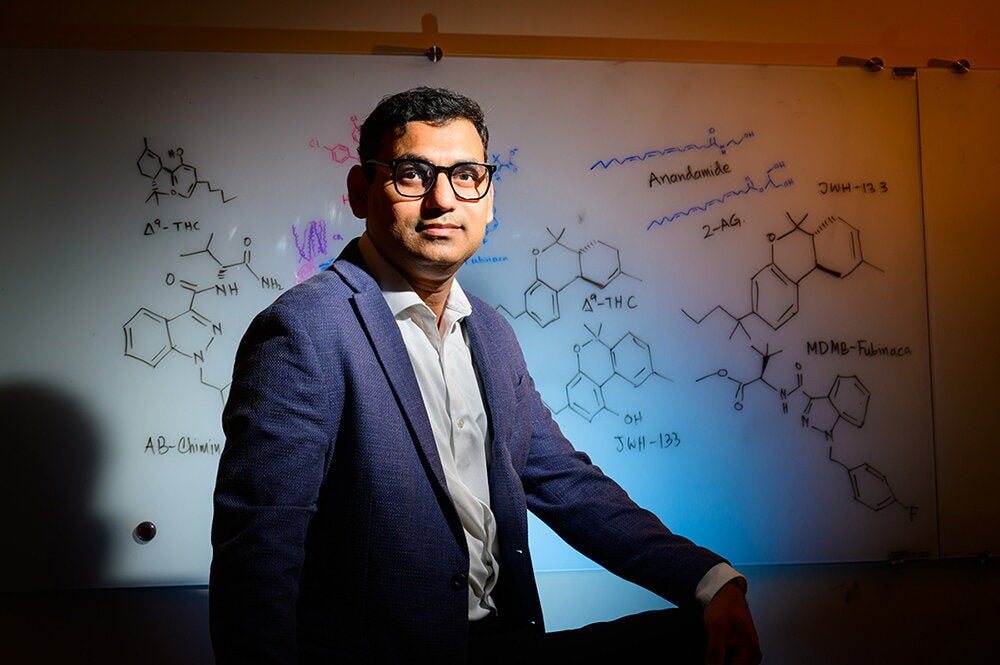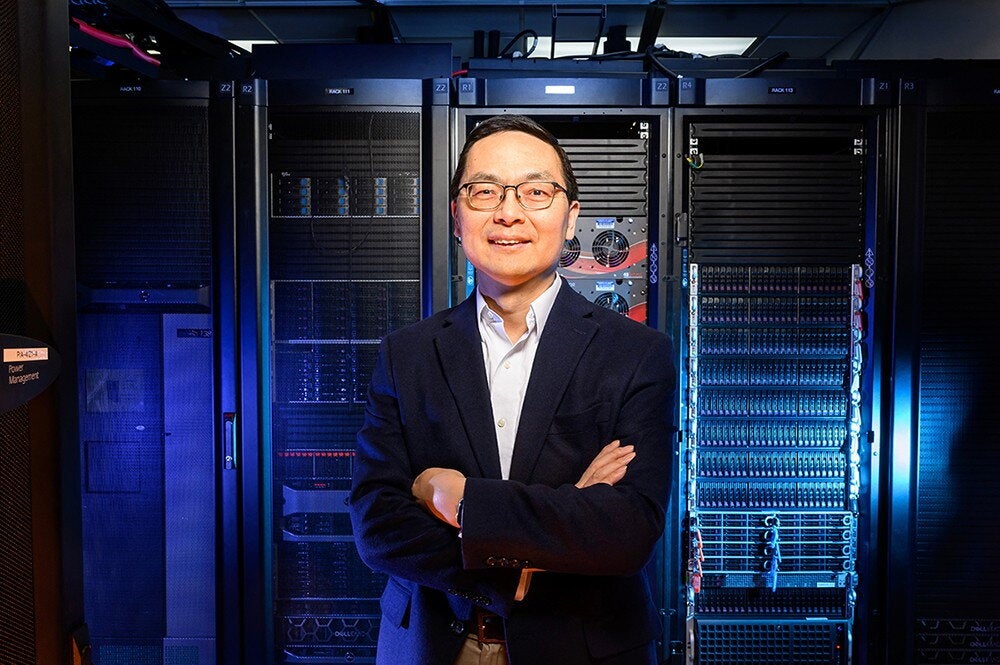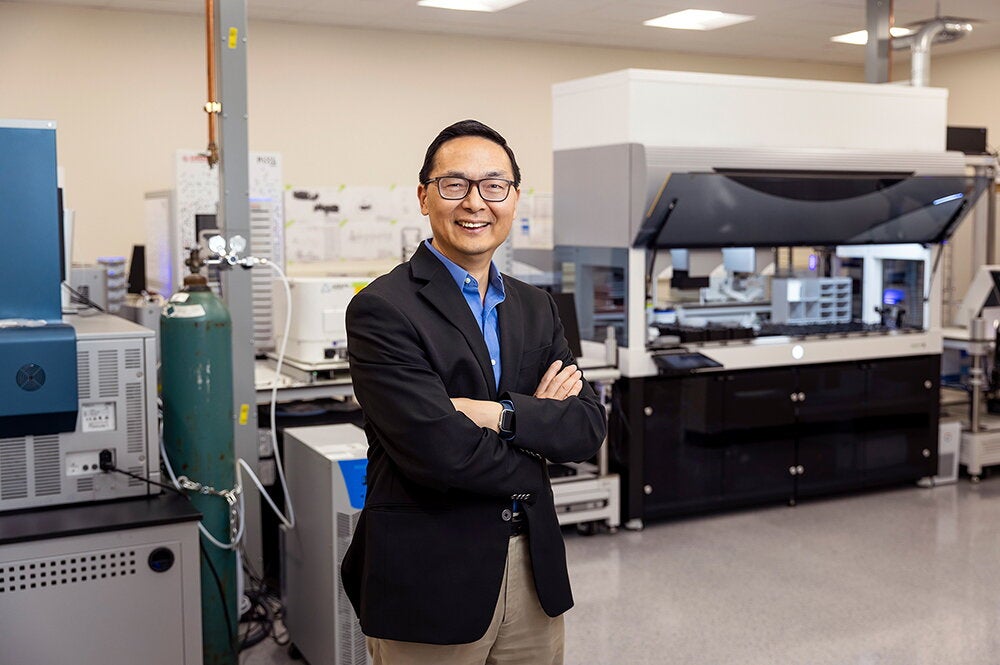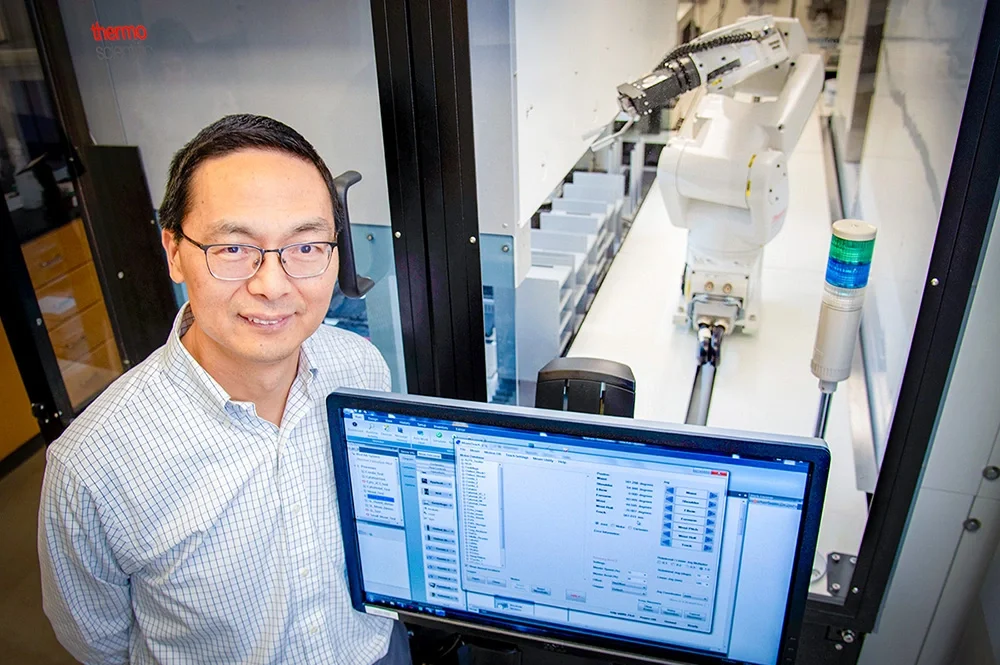
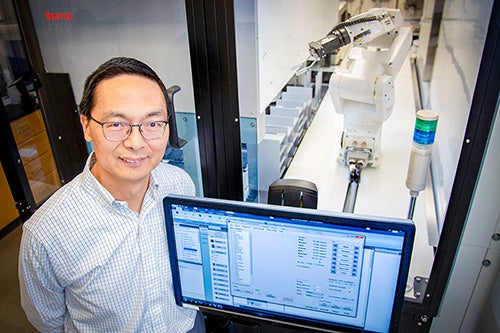
A newly funded U.S. National Science Foundation iBioFoundry at the University of Illinois Urbana-Champaign will build on more than a decade of research at the U of I to integrate synthetic biology, laboratory automation, and artificial intelligence to advance protein and cellular engineering. This is one of five new biofoundries to be established in the U.S.
According to the NSF, these facilities will “spur innovation, provide tools and technologies to researchers, and help advance biology, biotechnology and the broader science, technology, engineering and math enterprise.”
Each biofoundry will focus on a different area of biology or biotechnology, said chemical and biomolecular engineering professor Huimin Zhao, who will lead the NSF iBioFoundry. The Illinois facility will expand the use of automated systems, machine learning and AI to promote and optimize advances in synthetic biology, biotechnology and genomics.
Previous efforts at the U of I have led to major advances in integrating these elements, Zhao said. Earlier milestones include the development of BioAutomata, an AI-driven, robotic biomanufacturing platform that uses living cells to produce useful chemicals; and FAST-RiPPs, an automated platform for discovering new bioactive compounds. In 2014, Illinois researchers established iBioFab, a facility at the Carl R. Woese Institute for Genomic Biology that supports the efficient design, fabrication, validation and analysis of genetic constructs and organisms.
“The NSF iBioFoundry will serve as a hub for innovation, bringing together researchers, industry experts and policymakers to foster collaboration and accelerate the development of sustainable biomanufacturing processes,” Zhao said. “By centralizing resources and expertise, it will streamline the creation of new bio-based products and technologies, ranging from renewable chemicals to advanced medical treatments.”
Another key focus of the NSF iBioFoundry will be to share its capabilities with “a diverse community of external users who will work to solve important scientific problems through a peer-reviewed, competitive proposal process,” Zhao said. “It also will be an open ecosystem of disruptive thinking, education and community engagement that will revolutionize the way biology is taught and train the next generation workforce in biology, artificial intelligence, and robotics.”
The total NSF award to Illinois is $15 million for six years, Zhao said.
Zhao also is a professor in the IGB, a professor of bioengineering, of chemistry, and of biomedical and translational sciences in the Carle Illinois College of Medicine. He is a member of the Cancer Center at Illinois.
